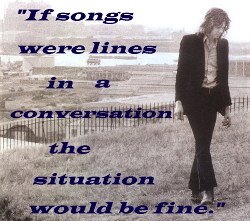(I will do this in a non-annoying fashion, I promise).

Not enough Oakland on this web log lately! OH DEAR. Nobody tell Ant Banks, please.
Del is a superhuman galactic being from the future trying to blend in as a male of the human species in Oakland; he has returned to share messages about time with all of us and has done so every couple of years through his chosen medium of hot fire raps*. And now, finally, the scientific community has caught up with him: thinking about the future, they say, makes you more creative. It's the magic of something called psychological distance that will make your creativity flow and will make your rhymes sicker. Oh wait--you're not all MCs. I forget sometimes.

An Easy Way to Increase Creativity
Why thinking about distant things can make us more creative
"According to the construal level theory (CLT) of psychological distance, anything that we do not experience as occurring now, here, and to ourselves falls into the “psychologically distant” category. It’s also possible to induce a state of “psychological distance” simply by changing the way we think about a particular problem, such as attempting to take another person's perspective, or by thinking of the question as if it were unreal and unlikely. Scientists have demonstrated that increasing psychological distance so that a problem feels farther away can actually increase creativity.
Studies (have also) demonstrated that distancing in time – projecting an event into the remote future - and assuming an event to be less likely (that is, distancing on the probability dimension) can also enhance creativity. In a series of experiments that examined how temporal distance affects performance on various insight and creativity tasks, participants were first asked to imagine their lives a year later (distant future) or the next day (near future), and then to imagine working on a task on that day in the future. Participants who imagined a distant future day solved more insight problems than participants who imagined a near future day.
This research has important practical implications. It suggests that there are several simple steps we can all take to increase creativity, such as traveling to faraway places (or even just thinking about such places), thinking about the distant future, communicating with people who are dissimilar to us, and considering unlikely alternatives to reality. Perhaps the modern environment, with its increased access to people, sights, music, and food from faraway places, helps us become more creative not only by exposing us to a variety of styles and ideas, but also by allowing us to think more abstractly."
Curtis Mayfield - "Future Shock"
You are just not paying attention if you thought for a second I wasn't gonna post this when I'm relaying a science story about the future. C'monnn.
mp3.
(I also wanted real real bad to post Prince's "The Future" from the epically tight Batman soundtrack; HOWEVER, Warner Bros' copyright protection and illegal file sniff-out game is, unfortunately, tighter than my mp3 Google-fu.)
.









1 comment:
I am going crazy trying to go through your articles, they are making laugh, think and groove all at the same time. Thanks for putting up a post on Del. He is still one of my favorites of all time.
Post a Comment